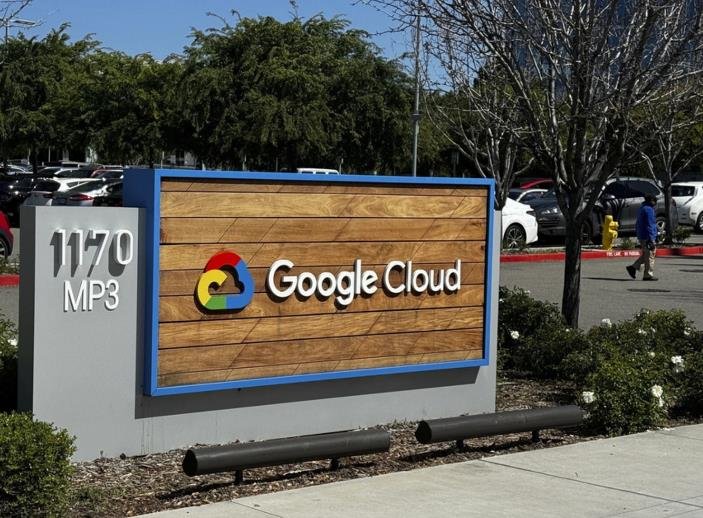Microsoft has accused Google of secretly organizing a lobbying group aimed at undermining its cloud business in the European Union and the United Kingdom, raising concerns about competitive practices in the tech industry.
In a bold move, Microsoft has publicly alleged that Google is behind a newly formed group intended to discredit Microsoft’s cloud services. Rima Alaily, Microsoft’s Deputy General Counsel, revealed in a blog post that this coalition comprises several European cloud providers and is set to launch this week. According to Alaily, Google has been working behind the scenes to mask its involvement, funding, and control of the group.
“Google has gone to great lengths to obfuscate its involvement, funding, and control,” Alaily wrote. “Most notably by recruiting a handful of European cloud providers to serve as the public face of the new organization. When the group launches, Google, we understand, will likely present itself as a backseat member rather than its leader.”
This tactic, Microsoft argues, undermines fair competition and misleads regulatory bodies about the true nature of the group’s backing.

The Alleged Strategy and Its Implications
Alaily further explained that Google is not only targeting Microsoft but also other hyperscale cloud service providers globally. She criticized Google’s stance, claiming the company contends it shouldn’t be classified alongside giants like Microsoft and Amazon Web Services (AWS).
“This strains credibility,” Alaily stated. “Google may have been late in meeting the needs of enterprise customers, but it is fully capable of competing head-to-head with AWS and Microsoft.”
Microsoft’s accusations suggest that Google is leveraging smaller companies by offering them financial incentives or discounts to join the lobbying effort, thereby amplifying its influence without direct association.
Historical Context of Google and Microsoft’s Cloud Rivalry
The tension between Microsoft and Google in the cloud sector isn’t new. In November 2022, the non-profit Cloud Infrastructure Service Providers in Europe (CISPE) filed a competition complaint against Microsoft with the European Commission. The complaint alleged that Microsoft was engaging in unfair software licensing practices, using its dominance in the European cloud market to steer customers towards its own Azure infrastructure.
Alaily claims that in July this year, Google attempted to “weaponize” CISPE against Microsoft by offering members a combination of cash and credits worth $500 million to prevent the settlement of the complaint and to continue litigation efforts.
Furthermore, in September, Google filed its own complaint against Microsoft’s cloud services in the EU, challenging the necessity to pay Microsoft when building and offering cloud services using Microsoft’s Windows Server intellectual property.
“We disagree [with Google’s complaint]. When a streaming service, like Netflix or Disney, includes a movie in their service, they pay for that right. They don’t get a credit or discount if a subscriber happens to own a DVD of the same movie. Software and the cloud are no different,” Alaily clarified.
Table: Timeline of Key Events in Google-Microsoft Cloud Disputes
| Date | Event |
|---|---|
| November 2022 | CISPE files competition complaint against Microsoft |
| July 2023 | Alleged Google offer to CISPE members ($500M) |
| September 2023 | Google files complaint against Microsoft’s cloud services |
| October 2023 | Microsoft accuses Google of orchestrating lobbying efforts |
Broader Implications for the Tech Industry
The accusations against Google come amid at least 24 antitrust investigations into the company across various digital markets worldwide. Microsoft believes that Google’s alleged lobbying efforts aim to achieve two main objectives:
- Diluting Microsoft’s Market Position: By creating doubt about Microsoft’s cloud services, Google seeks to weaken Microsoft’s competitive edge.
- Shaping Regulatory Outcomes: Influencing competition authorities to view Microsoft unfavorably could lead to stricter regulations and hinder Microsoft’s growth in the cloud sector.
These actions, if proven, could set a concerning precedent for how tech giants compete and influence regulatory bodies.
Public and Industry Reactions
The tech community has reacted with a mix of skepticism and concern. Industry analysts are closely watching the developments, questioning the ethics and legality of Google’s purported strategies. Some experts argue that such tactics could lead to increased regulatory scrutiny not just for Google but for the entire tech industry.
“Competitive practices are essential for innovation, but when companies engage in covert lobbying to undermine rivals, it distorts the market and harms consumers,” said Dr. Elena Martinez, a professor of Business Ethics at the University of Cambridge.
Microsoft’s Next Steps
In response to these allegations, Microsoft is expected to file formal complaints with the European Commission and the Competition and Markets Authority (CMA) in the UK. The company aims to bring transparency to the lobbying efforts and ensure fair competition in the cloud services market.
Alaily emphasized that Microsoft remains committed to competing ethically and maintaining the integrity of the cloud industry. “We believe in fair competition and will take all necessary steps to protect our business and the interests of our customers,” she stated.
The Road Ahead for Regulation and Competition
These developments highlight the growing tension between major tech companies and the increasing role of regulatory bodies in overseeing competition. As cloud services become more integral to business operations globally, ensuring fair practices and preventing anti-competitive behavior is crucial for fostering innovation and protecting consumer interests.
The outcome of Microsoft’s complaints and the potential investigation into Google’s lobbying activities could have far-reaching implications for how tech companies engage in competition and influence policy-making.
Microsoft’s allegations against Google for orchestrating a covert lobbying campaign against its cloud services underscore the intense rivalry within the tech industry. As regulatory bodies begin to scrutinize these claims, the future of competition in the cloud sector hangs in the balance. Both companies are likely to engage in a prolonged legal and strategic battle, shaping the landscape of cloud services in Europe and beyond.







